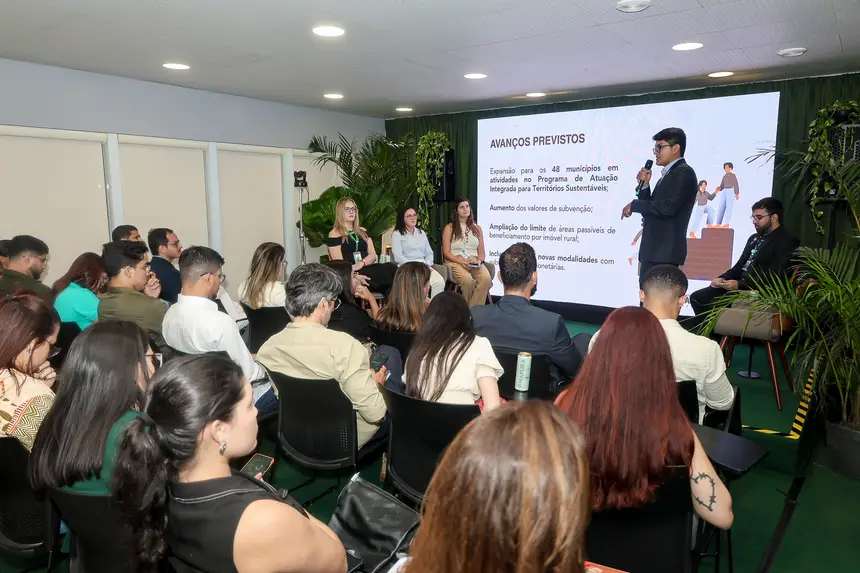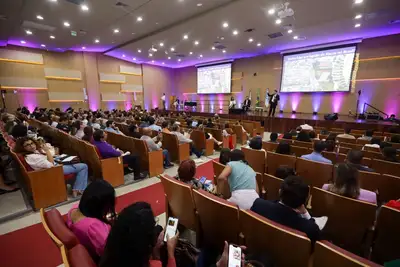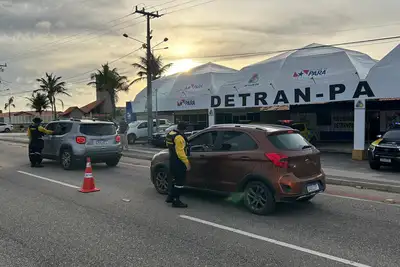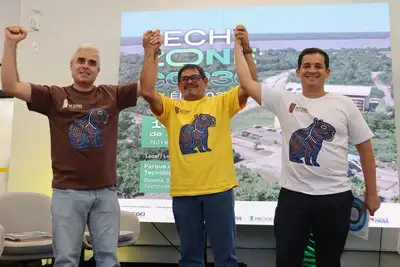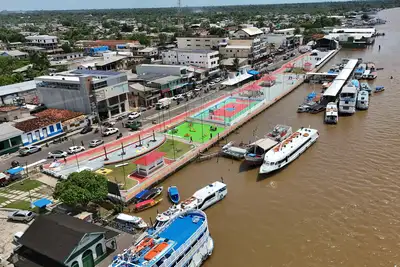Emater and Semas reinforce how family farmers are a tool for sustainability
The debate presented how the payment mechanism works in exchange for environmental services in the state of Pará
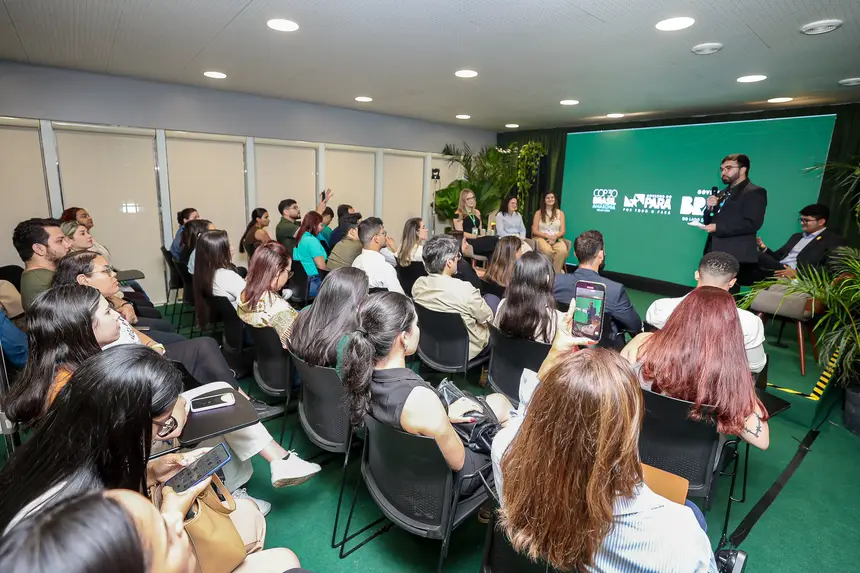
On the fifth day of the United Nations Climate Change Conference (COP30) in Belém, the Government of Pará, through the Technical Assistance and Rural Extension Company of the State of Pará (Emater-Pará), participated this Friday (14) in the Miririzeiro Room, in the Green Zone, in the panel "Payment Mechanisms for Environmental Services as a Strategy for Transition to a Low Carbon Economy."
Among the panel participants, which was fully booked, was Maria Gorete Rios, a rural producer from Novo Repartimento. She works with crops and livestock, in addition to planting açaí and cocoa in the region. Assisted by Emater for about four years, she was the first woman in the municipality to benefit from the National Program for Strengthening Family Agriculture (Pronaf), in the Women category.
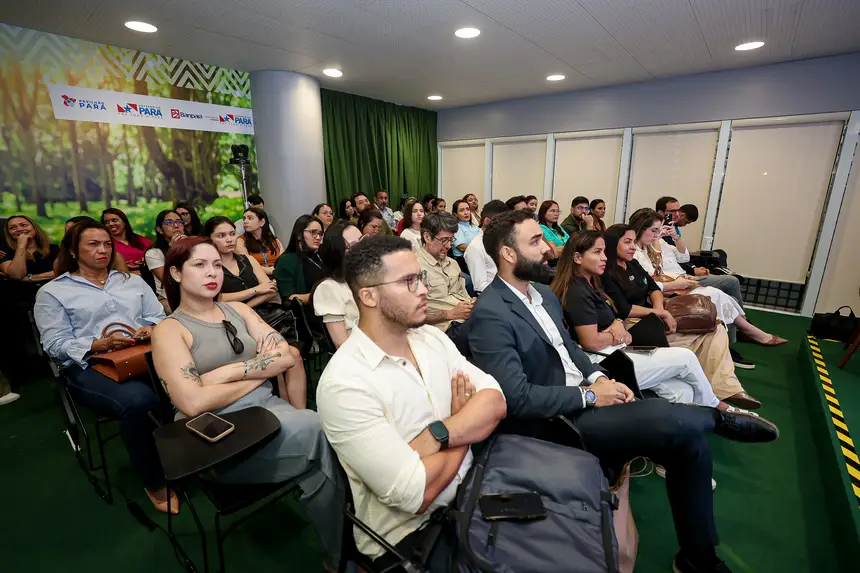
"I have accessed three financings through the support of Emater's technical assistance. Since I started receiving assistance and payments, my life has improved. Now I own my own herd, for example. In the past, I needed to rent my pasture. I was already environmentally conscious before, and now with the bonus, preserving the environment improves our lives even more," she said.
Environmental engineer Camila Salim, Operations Coordinator at Emater-Pará, highlighted during her contribution to the panel the importance of the technical team of rural extensionists in the field.
"This is a pilot project of the Government of Pará, in partnership with Semas and Emater. It is implemented in seven municipalities in southern and southeastern Pará. We presented during our participation the importance of family farmers joining this project, so they can contribute to the environment in exchange for financial resources, to preserve or restore these areas," she said.
In addition, the operations coordinator emphasized the importance of the rural extensionist as the main means of providing technical assistance and support to family farmers. "Even though Pará is a state of continental dimensions and located in 144 municipalities, we at Emater managed to issue about 122,000 Environmental Registrations of Family Agriculture (CAF) between January and August of this year, through public access. That is, for free. This accounts for 30% of the national issuance in the same period. This demonstrates how our extensionists in the field are fundamental in bringing rights and access to public policies that improve the quality of life for family farmers throughout the state of Pará," she emphasized.
For the manager of the Sustainable Territory Value Project (TS), Renan Batista, numbers like these reveal how technical assistance and support from extensionists in the field help in accessing rights. "It is important to emphasize that public policies like these do not build themselves, and that is what we are showing here. These partnerships are very important to reach the audience at the grassroots level," he concluded.


